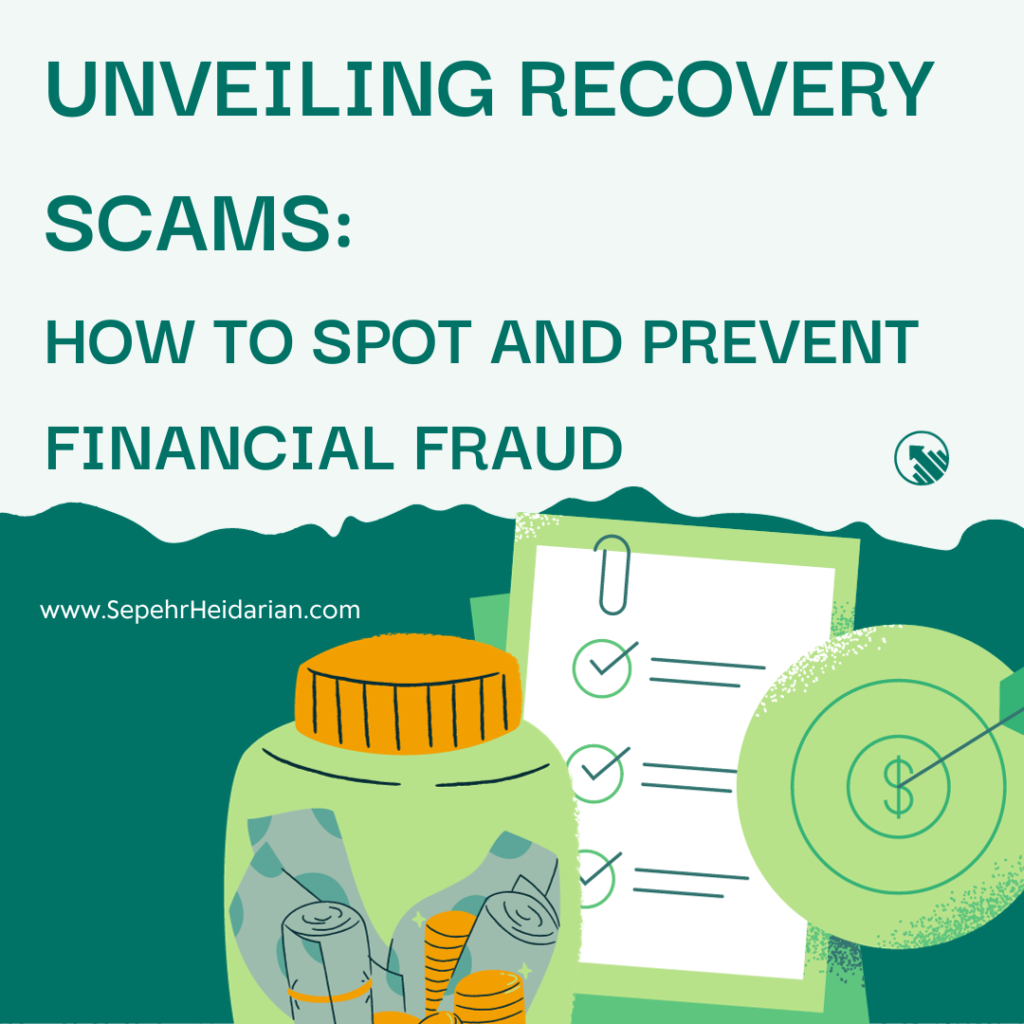Unveiling Recovery Scams: How to Spot and Prevent Financial Fraud
Introduction
As our lives become increasingly digital, the risk of falling victim to various online scams, including recovery scams, has risen. They target individuals who have already been victims of previous scams, promising to recover lost funds or assets. This comprehensive guide aims to shed light on the workings of recovery scams, equip readers with the tools to spot them, and provide practical tips on preventing falling prey to these deceptive schemes.
Understanding Recovery Scams
Recovery scams typically follow a well-defined pattern. Once an individual has been targeted and fallen victim to an initial scam, be it an investment fraud, a romance scam, or any other form of financial deception, the fraudster gathers additional information about the victim. This information may include personal details, financial records, and any documentation related to the initial scam.
Armed with this data, scammers pose as legitimate recovery agents, law enforcement officials, or legal representatives. They reach out to the victim, offering assistance in recovering the lost funds. The initial contact is often made through email, phone calls, or even social media, using sophisticated tactics to appear credible.
Spotting Recovery Scams
- Too Good to Be True Promises: Be wary of recovery agents promising swift and guaranteed recovery of lost funds. Legitimate recovery processes involve legal channels and can be time-consuming.
- Pressure Tactics: Scammers often employ pressure tactics, claiming that immediate action is necessary to recover the funds. They might use fear or urgency to manipulate victims into providing sensitive information or making payments.
- Upfront Fees: Legitimate recovery processes do not require upfront fees. Be skeptical of any recovery agent or firm that demands payment in advance. This is a common red flag in recovery scams.
- Unsolicited Communications: If you receive unsolicited emails, phone calls, or messages from individuals claiming to be recovery agents, be cautious. Legitimate recovery processes are initiated by the victim, not by external parties.
- Impersonation of Authorities: Scammers often impersonate law enforcement officials or government agencies. Verify the identity of anyone claiming to be from such entities through official channels before sharing any information.
Preventing Recovery Scams
- Educate Yourself: Stay informed about the latest scams and tactics used by fraudsters. Awareness is the first line of defense against recovery scams.
- Verify Identities: Before engaging with anyone claiming to assist in recovery, verify their identity. Check official websites, contact law enforcement agencies, or consult with financial institutions to confirm the legitimacy of the recovery agent or firm.
- Use Secure Communication Channels: Be cautious about sharing sensitive information through unsolicited communication channels. Use secure and verified methods to communicate with authorities or legitimate recovery agents.
- Seek Legal Advice: If you are a victim of a scam and considering recovery, consult with legal professionals who specialize in financial fraud. They can guide you through legitimate recovery processes and help you avoid potential scams.
- Report Suspicious Activity: If you suspect you are being targeted by a recovery scam, report the incident to law enforcement agencies, your financial institution, and relevant consumer protection organizations. Your report may prevent others from falling victim to similar scams.
Conclusion
Recovery scams prey on individuals who have already experienced the distress of financial fraud. By understanding the tactics used by scammers and staying vigilant, individuals can protect themselves from falling victim to these deceptive schemes. Remember, skepticism and thorough verification are key to preventing recovery scams and safeguarding your financial well-being.
